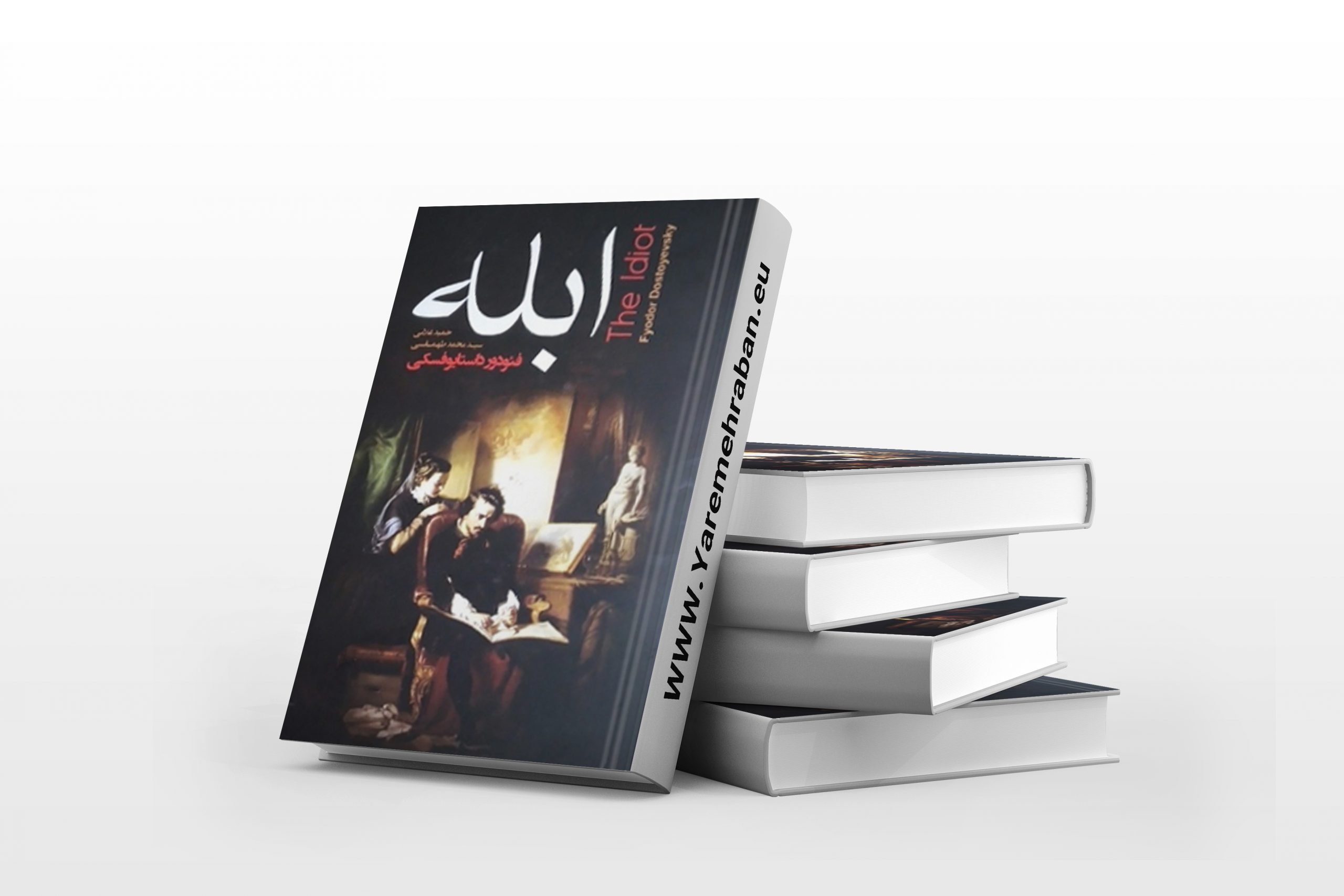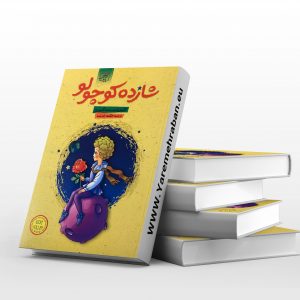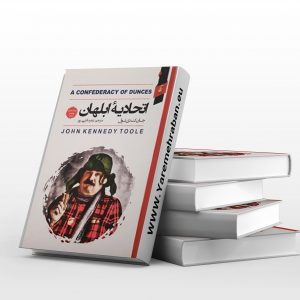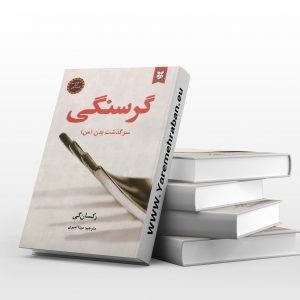Description
Introducing the book The Idiot by Fyodor Dostoevsky
Another masterpiece by Fyodor Dostoevsky shows more than anything else that honesty is worthless when learning lies and deception.
Doodle is a combination of a series of unfortunate events, events that have been predicted by sensitive personalities, but none of the events have been prevented at will.
In The Stupid, Fyodor Dostoevsky understands the fate of the world through the fate of his people.
This is the common view of the great nationalists, who believed that humanity could progress only through national heritage.
The grandeur of this novel is shown by the interdependence of the metaphysical laws that govern the progress of humanity in general with those laws that govern the nation.
These laws mean that deep human motivations are firmly entrenched in the Russian spirit.
The ability to demonstrate or manifest these motives, which are freely suspended in the social fabric of the masses and at the same time inseparable from it, is perhaps the only function of the essence of freedom that exists in Dostoevsky’s sublime art.
Dostoevsky does not choose the psychology of his characters as a starting point.
In essence, the psychological dimension of these characters is nothing more than a delicate experimental plant in which pure humanity is produced by the inner fiery force of a passing nation.
Psychology, then, is nothing but the nature of human existence.
Dostoevsky also believes that the only way to salvation for young people and their nation lies in their childhood.
It is clear that in this novel the childish characters of Kelia and the prince are the purest characters, although in the novel the Karamazov Dostoevsky brothers did not seek to cultivate the idea that there are infinite healing forces in childlike simplicity.
The nineteenth and twentieth centuries are a time of great change in Russia.
This period can also be considered as the flourishing period of this country’s literature. Russian writers during this period contributed unique works to world literature. Doodle is one of these valuable works that is considered by many critics as one of the literary masterpieces of history.
Reading a stupid novel is like looking at the world with a special and exceptional filter.

The Idiot, like any other work of art, is based on one idea.
“This novel is an ideal that precedes experience and has an indirect need to be,” says Navlis. Doodle derives its mechanism of action and its inherent identity from the fact that the novel itself is a side story, a side story of the life of the main character, Prince Michigan.
All in all, the life of this prince, both before and after this sub-story, is buried in an aura of ambiguity, and given that he spent years before and after the story abroad, it can be clearly seen that He found out.
How did he feel the need to return to Russia? His Russian identity emerges from the darkness and ambiguity that surrounds him abroad, just as the colors of a spectrum emerge from the heart of the darkness that surrounds it.
But what is the light that is refracted during Michigan’s life in Russia? With the exception of his many mistakes, as well as the pious qualities that manifested in his behavior, it is not possible to properly define what he did during this period. The alien is similar.
He has failed not only in terms of social values, but also because his closest friend can find a definite thought or purpose in his life just because the logic of the novel has shaped a purpose in his life. An environment free of any disturbance and surrounded by a completely isolated atmosphere.
The life of Prince Michigan is presented to us as a side story only in order for his immortality to be symbolically visible to us.
In fact, his life is as perishable as the life of nature, a nature with which he had a deep connection.
Nature may be immortal, but the prince’s life will certainly be immortal; And this is the truth that must be received through an inner and spiritual meaning.
This is true of him and all those in the circle of gravity around him.
But this immortality does not mean the perfection of nature, although it seems to be very close to it, because the concept of perfection negates the concept of eternity, while eternity reaches its peak of glory in immortality. The immortal life to which this novel testifies is very different from immortality in its general sense.
Because in the general sense, life is essentially perishable, and the only immortal things of man are energy, personality and soul in its various forms. It is precisely in this sense that Goethe speaks in conversation with Ackermann about the immortality of the state.
In his view, nature must inevitably provide us with new areas of convention after this conquest has been taken from us.
Fyodor Mikhailovich Dostoyevsky was a Russian novelist, short story writer, essayist, journalist, and philosopher.
Dostoevsky has created unique literary works that explore the psychology of the turbulent political, social, and spiritual atmosphere of nineteenth-century Russia.
He began writing at the age of twenty, and Dostoevsky’s first novel, Poor Folk, was first published in 1846, when Dostoevsky was only 25 years old.
His most important works are Crime and Punishment, The Fool and the Karamazov Brothers. His works include 3 feature novels, 3 novels, 17 short stories and many other works. Many literary critics refer to him as one of the greatest and most prominent psychologists in world literature.
The novel Notes From Underground is one of the first existentialist literary works.

In a part of the book The Idiot, we read:
In the first place, I have to be polite and honest with others, no one expects more from me. Maybe everyone here thinks that I am a child, well, let them think, I do not know why everyone thinks I am a fool.
Of course, I was seriously ill for a while at that time and I was very similar to stupid people, but am I still stupid? When I realize that people think I am stupid, then I am smart and I am not crazy.
I think to myself when I enter a place. “I know everyone thinks I’m stupid, but I’m smart and they can not understand that.”
It was only in Berlin that I received a few letters from the children, it was there that I really realized how much I loved them. Receiving the first letter was the most painful for me. How sad they were when I was chased away.
For a month before I left, they kept coming to me and saying, “Leon is leaving, Leon is leaving us forever.”
Fyodor Mikhailovich Dostoevsky Born in 1821, the famous Russian writer was born in Moscow. Fyodor was the second of seven children in the family. His father was a retired military doctor who had emigrated from Ukraine to Moscow;
The Idiot
A staunch Christian who treated the poor for free at Moscow’s Marinsky Hospital.
They lived in dilapidated houses on the grounds of Marinsky Hospital in one of the lowest areas of the city, next to a criminal cemetery, a nursing home and an orphanage.
Although his parents were harsh on him, he liked to walk in the hospital yard, where the patients were sunbathing; Sit next to them and listen to their stories.
In 1834 he and his brother were transferred to a boarding school, and his mother died at the age of fifteen.
In the same year he passed the entrance examinations for the School of Military Engineering in St. Petersburg, and in the summer of 1839 he received the news of his father’s death.
In 1843 he graduated from the military academy with the rank of officer and worked in the engineering department of the Ministry of War, but resigned a year later and began writing.
In his works, Dostoevsky portrayed characters who even justified murder under the banner of their ideological beliefs.
For this reason, the works of this author are relevant to the challenges of the time, both during the rise of twentieth-century governments and today.
He was particularly skeptical of the thoughts and ideas that had spread among intellectuals after ten years of exile and return to St. Petersburg.
The Stupid novel is also full of different sinners. From harmless drunks like Evelyn to liars and rebels like Lebidyev and Claire and even assassins like Ragugin.
Prince Mishkin spends considerable time with these sinners, even after many have insulted him. They need a prince both morally and spiritually.
Mishkin’s efforts to help them, even after their insults, show his utmost kindness and self-sacrifice.
1- Introducing the book The Idiot on YouTube
2- Introducing the book The Idiot in Aparat














Reviews
There are no reviews yet.